Merrill Scott and the Anderson Case: There’s Good News and More Good News
Volume XI, Number 1 – February 2002
INTRODUCTION
The APN has repeatedly warned our readers against so called “too good to be true” income tax reduction schemes involving offshore entities (See APN Vol. VI, No. 2 and APN Vol. VI, No. 4). In this issue we’ll see what recently happened in one such case.
Also, the APN has covered the Anderson case (FTC v. Affordable Media, LLC; full text of case decision) in two prior issues (See APN VII, No. 2 and VIII, No. 3). In this issue we’ll update you with an important recent decision of the Cook Islands Court.
TOO GOOD
A group of related promoters of abusive offshore income tax reduction schemes (we’ll refer to them collectively as Merrill Scott; here’s who was enjoined: Merrill Scott & Associates, Ltd. (MSA); Merrill Scott & Associates, Inc. (MSAI); Phoenix Overseas Advisers, Ltd. (Phoenix); Gibraltar Permanente Assurance, Ltd. (Gibraltar); Patrick M. Brody; and David E. Ross II), was enjoined in an order dated January 15, 2002, obtained by the U.S. Securities and Exchange Commission (SEC), from continuing violations of a variety of federal securities laws.
The SEC complaint alleges that several of the Merrill Scott entities are engaged in an ongoing scheme in which they have obtained investments of cash and marketable securities from U.S. citizens primarily seeking tax advantages through offshore investments (We bet the IRS will soon be involved, as well).
The complaint also alleged that since at least 1999 Merrill Scott has been operating at a loss due, in part, to misappropriations of an estimated $9.5 million by one of its principals (Brody). The complaint further alleged that in order to keep Merrill Scott afloat and keep clients satisfied, Brody operated the organization as a giant Ponzi scheme, using newly invested money to pay returns to earlier investors. The complaint alleges Merrill Scott sells its clients a “Master Financial Plan” (MFP) which establishes a complex program for each client involving the creation of offshore entities and accounts into which the client’s income and assets are placed to generate investment income, reduce taxes and protect assets.
It is further alleged that various Merrill Scott entities control the assets and ostensibly implement the instructions of each client as set forth in each client’s MFP. However, Brody had sole signatory authority (a red flag!) for all accounts established for the benefit of clients and, with the assistance of others, used this authority to transfer and invest client funds at will.
HOW TO PROTECT YOURSELF
How can you protect yourself from becoming a victim of such a scheme? Seek out a licensed attorney based upon his/her professional experience and qualifications.
Important Questions to Ask an Attorney
- How long have you been practicing law?
- How long have you been implementing plans of the type I’m contemplating?
- What are your professional credentials?
We all want to reduce our tax burden, and when we hear that someone has a “solution” for us, some of us put blinders on and are led down the primrose path. Rest assured: there is no legitimate way a US citizen/resident can eliminate income taxes using a foreign trust or other foreign entity (or a combination of such entities). Finally, “if it sounds too good to be true, it is.”.
ANDERSON UPDATE
A brief refresher: The Andersons established a Cook Islands trust and funded it with (among other assets) commissions earned in connection with a marketing scheme. The Federal Trade Commission (FTC) sought to freeze the Anderson’s assets (along with the assets of others involved in the program) and found, to its dismay, that it could not freeze the Anderson’s assets because they were safely tucked away in a Cook Islands trust.
Unfortunately for the Andersons, their trust was poorly designed: they were designated both as co-trustees (with the Cook Islands trustee) and as protectors (= lots of control).
The U.S. trial court ordered the Andersons to repatriate all assets held in their offshore trust. This order caused their (automatic) removal as co-trustees, which, they then claimed, made it impossible for them to repatriate the trust assets. The trial court held, and, on appeal, the Ninth Circuit agreed, that the Anderson’s still retained a great degree of control over the trust (as protectors), and, without addressing the United States Supreme Court rule, which holds that impossibility is a defense to contempt, held them in contempt, and ordered their incarceration.
The Anderson’s incarceration ended with their agreement to (among other things) remove (acting in their capacity as protectors) the existing Cook Islands trustee and to appoint “FTC, Inc.” (a corporation organized by the FTC) to replace the existing Cook Islands trustee which had stood up to the United States government agency. In addition, the documents executed by the Andersons attempted to cause the appointment of FTC, Inc. as successor trust protector. The existing Cook Islands trustee didn’t agree, and sought a ruling by the Cook Islands Court as to the efficacy of the foregoing documents.
THE DECISIONS
In a decision rendered on August 10th, 1999, the Cook Islands Court essentially threw the FTC out of court and assessed costs against it. Shortly thereafter, the FTC went back to the Cook Islands Court, that time alleging (primarily) that the transfers to the trust were fraudulent transfers (the only correct approach to take) and seeking to have those transfers set aside (undone).
In December 2001, the Cook Islands Court reached a landmark decision in which it held (without even addressing the fraudulent transfer issue): that the FTC was in essence attempting to enforce the penal or public policy law of another state (the United States) and that, according to well-established English common law principles, no English common law jurisdiction should entertain the action.
This meant that the Court never addressed the fraudulent transfer argument, a holding which strongly suggests an enhancement of the protection of the Cook Islands. This is the end of the matter from the Cook Islands perspective (meaning: the protected assets cannot be reached by the U.S. FTC).
For more than twenty years, AV preeminent attorney of Donlevy-Rosen & Rosen, P.A. have been leaders in the field of asset protection, authoring books, articles, and research materials for other planning professionals. contact us to find out how we can better protect your assets.






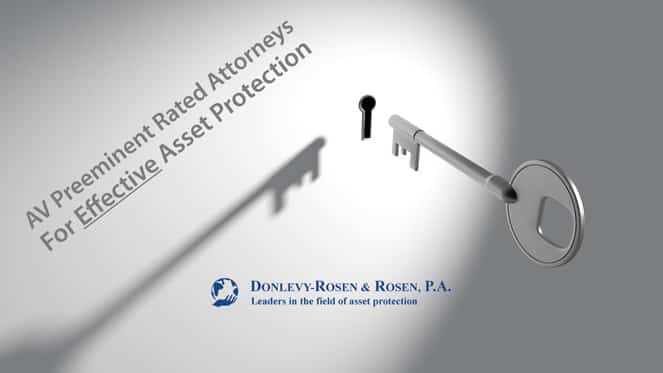


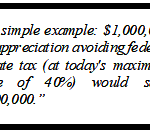
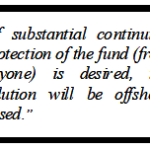



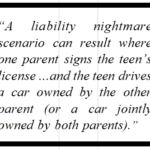
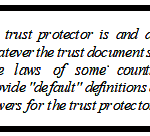
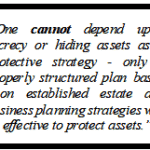
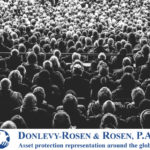
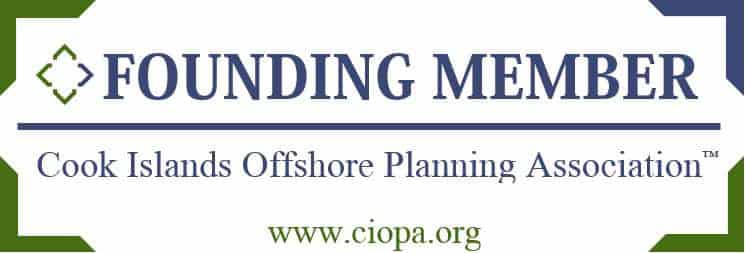
Connect
Connect with us on the following social media platforms.